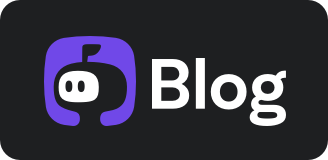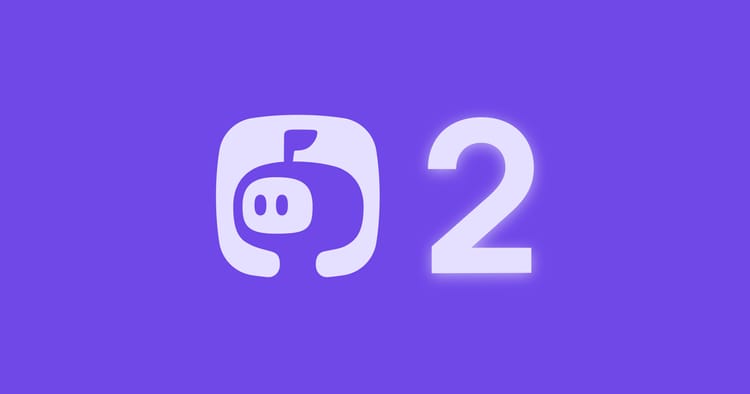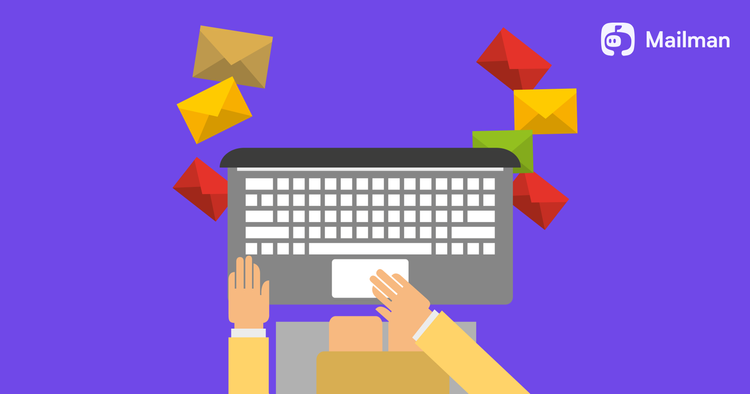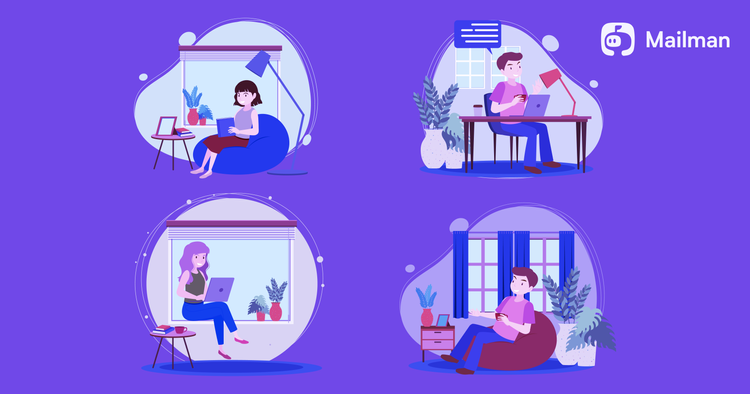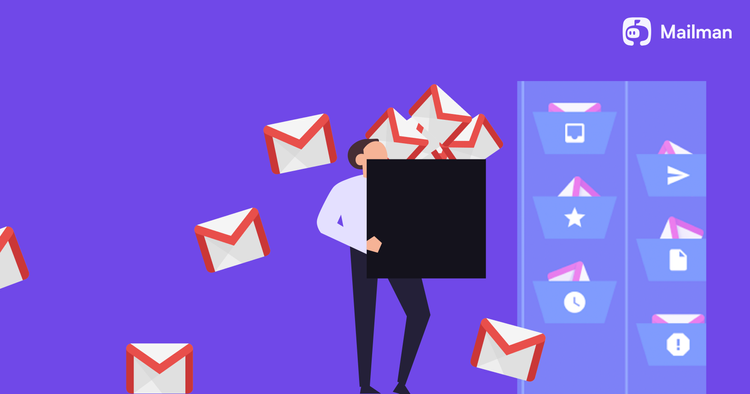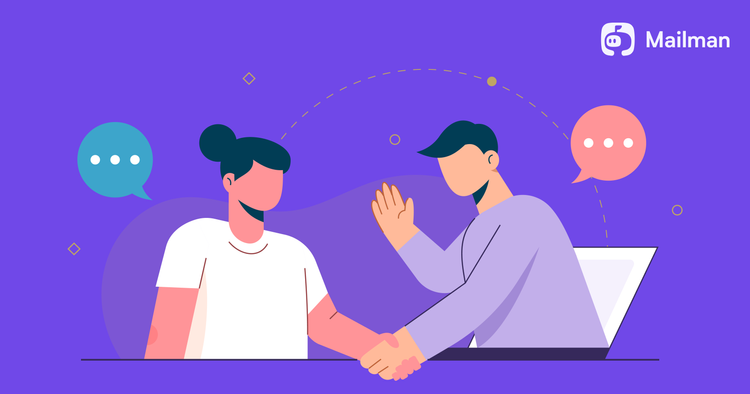When "inbox zero" person runs an email marketing company
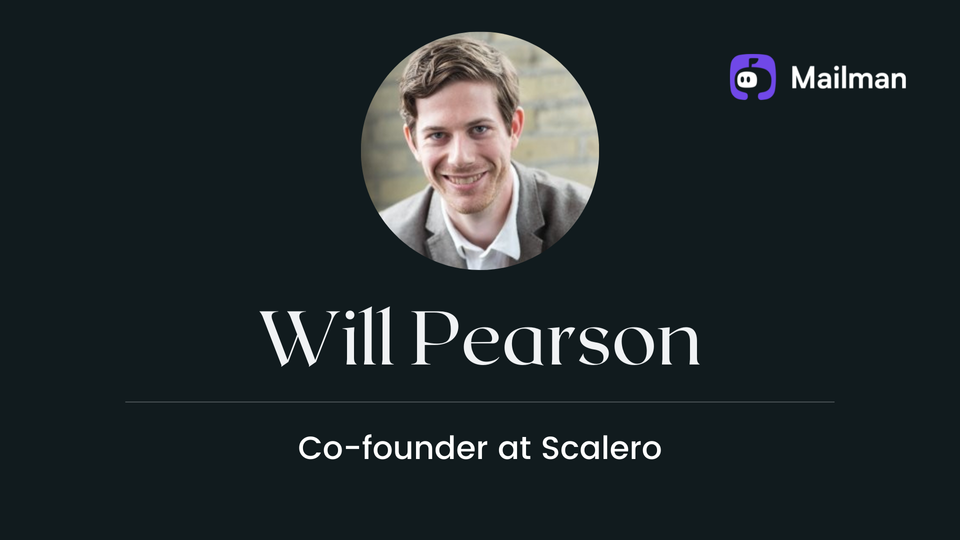
“I am an ‘inbox zero’ type of person myself. I always need my inbox to be clean and with zero unread.”
This is how Will Pearson started when asked about his perspective on emails and how to keep it productive. It is interesting to note that Will is the co-founder of Scalero, which essentially helps companies efficiently send out bulk emails.
How can Will simultaneously be an “inbox zero” person and a co-founder of an email delivery platform used by companies to send a lot of emails?
Will explains how -
“I don’t want a lot of brand emails that aren’t relevant to me in my inbox. That's really the key. I need to understand “why am I receiving this email?’”. Once I know the ‘why’, I am happy to receive it and it refers to the value I can get from it.
That’s what we try to help our clients with, as well. It's not necessarily sending more emails but sending better and more relevant emails like a consumer should always understand why they are receiving it. What action they have taken to receive this email.
That's all I look at from my personal life too. I am very quick to unsubscribe if I didn’t sign up or it doesn’t make sense to me on a personal level and I would expect the same from our client's subscribers too. Your brand emails can be thought of as troops, you have to send something interesting and relevant in order to break through all that noise.”
In short, Will believes and even convinces his clients to make their emails relevant, personalized and helpful. If it’s all of those things, you won’t have much of a problem running your email campaigns. In that sense, Will might be the perfect leader for an email workflow company like Scalero.
In this episode, Will shares how he started his career working at Target, story of how he started Scalero, his intense work ethic, how his typical day looks like, creating boundaries between life and work and the productivity mistakes he’s made along the way.
Let’s dive straight in!

Will introduces himself
Hi, I’m Will Pearson. I am the co-founder of Scalero, an email marketing company. What do we do? We have two main business streams, one of which is consultancy, we help brands manage their email program whether that’s helping them with email design, email coding, strategy. We also have our own email application for brands who need to improve their work flow in creating emails. Creating emails takes way too long so we have created a tool to help them streamline that process and build better emails faster.
We typically work with two types of clients one is a growing startup that has a list of subscribers but they don’t really have the team internally to understand how to reach out to them. They don't necessarily have a strong strategy so we help them with that. And our other types of clients are more enterprise clients who have a lot of people on the marketing team, let's say 10 to 50 people on a marketing team. Everybody wants to have a say in email and things just get too messy, we help them get organized and work more efficiently and send more efficient emails.
From working at Target to starting a company
I began my career at Target in Minneapolis, their headquarters. I had a few roles there within merchandising and operations and I really kind of cut my teeth in understanding business and how business should work but the keyword there is “big business” and it was little too big for me. I wanted to try something smaller, much real and within tech and that led me to San Francisco, where I joined Vivino the vine app.
At that time when I joined Vivino we had about 5 or 6 Million users of the app. But no revenue, so part of my job was to build out the ecommerce business at Vivino and start selling vine to the users who were using this app. Had a lot of success doing that. It was a really fun ride. We launched in over a dozen countries, we were selling vine all over the world and we were doing that mostly through email. So all the different marketing tactics we tried, emails were the tried and true winner over and over. So at vivino we use a variety of tools some were homegrown some were external to build emails no matter what we were doing it was a frustrating process.
My team was largely the vine buyers and the copywriters and they were creating all the marketing materials for the email. We were working with a CRM email team that was doing the segmentations and building the emails. My now cofounder at Scalero was running CRM at Vivino. We came together and thought okay if Vivino is having this issue then a lot of other companies have to be having that issue as well and that’s what really led to us creating Scalero.
So we were building these tools to help these large email teams like Vivino function better and more efficiently. Vivino has been one of our first and better customers so we have built that tool for Vivino and we are really just seeing a lot of interesting things in the email marketing space where companies want to send more emails. To send better emails they often get in their own way, they don’t know how to do it efficiently, that’s truly what we are trying to build here.
Personalizing emails is the key
I am personally an inbox zero type of person. I always need my inbox to be clean and I need it to be with zero unread. Which means I don’t want a lot of brand emails that aren’t relevant to me. That's really the key. I need to understand ‘why am I receiving this email?’. And then I am happy to receive it and it refers to the value I can get from it.
That’s what we try to help our clients with as well. It's not necessarily sending more emails but sending better and more relevant emails like a consumer should always understand why they are receiving it. What action they have taken to receive this email.
That's all I look at from my personal life too. I am very quick to unsubscribe if I didn’t sign up or it doesn’t make sense to me on a personal level and I would expect the same from our client’s subscribers. You know they can be thought of as troops and we have to send something interesting and relevant in order to break through all that noise.
I think we always want to push as many automations as possible. If you are manually pushing out emails all the time it's very hard to be relevant to your consumers. Automation and personalization are the key. One of the successful emails that we had at Vivino were the email that actually contained an image that the user had taken in the Vivino app. Today there was a bottle of wine in one of them. It's a good picture of wine. We sent an email which had the picture in it as well. And then said thanks for scanning. Here's another wine that we think you will like more than what you are drinking right now.
What we see is each consumer is different. They are different in their region in that type of country. How far in the life cycle they are with you. There are so many nuances here. Just have to test and continue to get better. Email is not really put on it. Is like a constant flow that should go on as you are working on improving based on what consumers like.
It feels like I am doing everything everyday
We have about 10 full-time people in our team right now and we are growing. But we are still small, so we have our hands in everything. It is just full of multitasking. I have dozens of things I need to do and maybe half of them are for clients and one third of them are for potential new clients. And the rest of the day is for maybe operational, finances and things like that. These are creative tasks, analytical tasks, managerial tasks and a little bit of everything and it feels like I am doing them everyday.
Typical Day
I have a 4 month old daughter right now. So it dictates my morning for sure. Actually I was on a short paternity leave I took and discovered Mailman by the way. I was up in the middle of many nights. Because I like inbox zero, I used to start checking emails. And realize that my brain is not in a good spot creating emails and answering them. So Mailman has helped me to control when I am focused on emails and when I am not.
I try to wake up before my daughter does so I can get a little bit of time with my workout. I have a little bit of time for myself. I spend the first hour or so with her and then try not to have any distractions from my phone. Sometimes they trip through. I saw some slack text messages last night trying to put to the side at least for the beginning of my day. And then we do a stand up in Scalero at 9:30 in California time.
We all are working remotely at the moment because of Covid. But we also have a team in Mexico city. The daily standup is a normal occurrence.
That's really how we get started, talking about what we're working on today and what's important. After that I probably spend an hour or so going through emails or my day organizing what urgent messages need to be addressed right away and what can be pushed out. That is kind of chaotic. From there some days will be full of client meetings. Some days I will have a couple of client meetings and a couple of sales meetings. But it's very unpredictable after that I don't know what client requests are coming in. At any point that might be urgent. So I am just trying to stay organized as best as I can. And also staying flexible but you know each day is a totally different challenge, totally unknown which is very exciting but honestly has downside too of stress and anxiety.
Creative Time
I used to block 3 hours of time on Thursday afternoon for creative stuff. Write blogs for our website and create new content for our website. That I just kind of fell off because people kept scheduling meetings. Eventually I just erased it from the calendar. But I did find that it was a pretty good technique but it just got deprioritized. I find myself being three days in a row too busy. I blocked that time. But I try to let it happen kind of organically too. And a lot of times it's happening when I am not in front of the computer. I am out for a run or I am just upstairs relaxing and I have a quick flow of thought. I just send myself an email as a reminder for that later. It's a little bit organic which can cause problems too.
I am figuring out and still learning what I am best at trying to get better at both is interacting with customers and doing deep work. I like the people aspect because all the client interaction I have I am trying to learn what they need so that we can solve that for them. I can never take those for granted. When there is creative time at that time I can apply that knowledge from the client to something for the business. So I have to focus on both. I enjoy both right now.
Creating boundaries
I am creating boundaries. For example, my daughter has started to go to bed around 6:30 or 7:00 pm and especially in times of Covid where I get to work from home I do set that boundary around 5 o'clock . So I can have an hour or 2 with her right now and I am not going to work and that is just an important time to have. After she goes to bed and I have dinner with my wife I sometimes have to get back on when there's more work to be done and I have that accomplished feeling that I can go to bed relaxed. I will try to get some more work done. I find it to be really important for my own mental health. I am learning the boundaries, I believe they are very important and I want to continue to have those.
I don't respond after 5pm. Maybe my team has learnt that they won't get a response from me until the next day after that time. I just put things away and I know they will be there with me when I want them.
I am an extreme multitasker. That has its benefits and it's disadvantages. I am very flexible. I can move on to different tasks very quickly but I also can be distracted by other tasks. The way I manage it is through Notion.
Thinking in terms of days
I think in terms of days. There’s a lot coming in everyday. If you see my calendar on Friday, there are not a lot of things in my calendar but if you see my calendar on Monday there are Tuesdays all full, Wednesday all full, things are coming in that feel sort of last minute. I don’t know if that’s just because we are a new company or a younger company but it’s hard for me to get out of the current week and think much further beyond that.
Organized Notion page
We developed this full Notion thing on our own. When we started Scalero it was just my co-founder and I. We then started to add a designer and a developer. And we were just trying to figure out the best way to communicate with them and we tried a couple of managing tools and we just liked the notion's flexibility the best. So we have slack integrations for example when we create a ticket and assign it to somebody they will get notified on slack and it takes out that extra layer. We also use notion to track the work we are doing for clients to see. All this is open for clients and then we have pages and we have created a portfolio for clients to let them see what emails are live and what we are working on. So it’s really just a super transparent system and we have just found that works well and it creates a lot of trust between our clients and us.
Productivity Mistakes
I think everyday I am making some sort of time management mistakes. If I always have this long to-do list and a lot of things to do. And like I said I am an “inbox zero” type of person. So anytime I am not at zero it becomes stressful for me. I think for me when I started Scalero and my background was ecommerce retail and operations. I wasn’t necessarily an email expert. I didn’t know those strategies, I didn’t know about the ins and outs of email and the technical aspect of email so I had to learn a lot.
There were many many moments and there are still many many moments where I am educating myself and a lot of time I am spinning my wheels trying to learn something which is why I spend two hours on a project and if I just ask a developer to do maybe 10 minutes of their time.
Sometimes I have a hard time finding a balance between is this a good thing for me or am I wasting time. And I don’t need to learn this or that I just need to learn how it’s done and someone can actually do it. Is that more efficient for everybody? I think it’s almost like trying to become an expert when maybe I don’t need to be an expert. You know like learn 75% and you can really be efficient vs learning to get you to 100%. I sometimes still spend too much time trying to get to that 100%.
One extra hour.
If I had an extra hour in my day, I would spend my time growing the company and that’s my short term answer. My long time answer would be just to go outside. You know I live in California and the weather is pretty good outside and if I could just be outside for one or two hours each day I think my mental health would be much stronger and I would be much more productive. I will find a way to get outside.
How to reach Will?
You can get in touch with me at our website scalero.io. You can always find me on linkedin, I’m Will Pearson there. You can message me there and I will be happy to chat with anybody.
